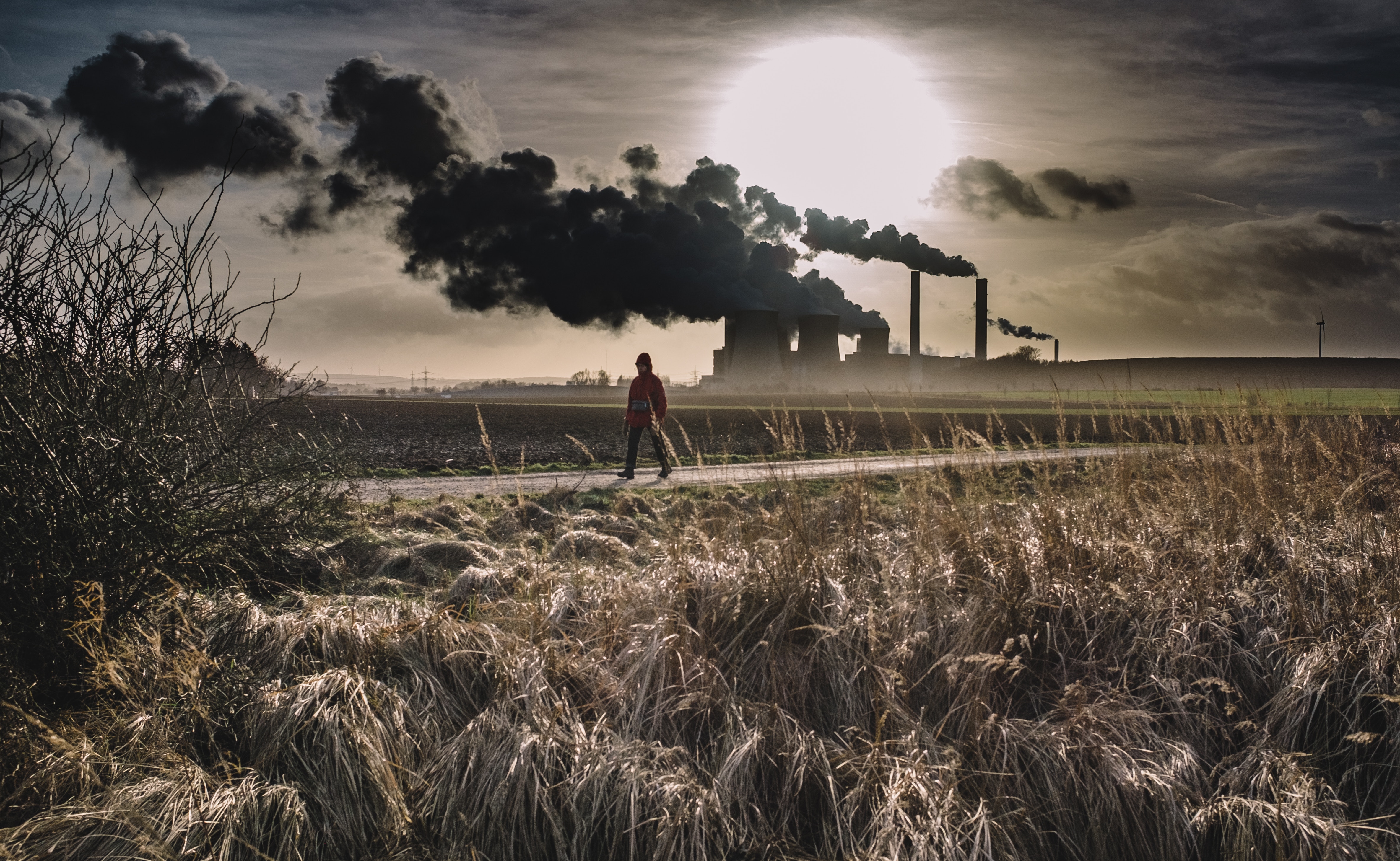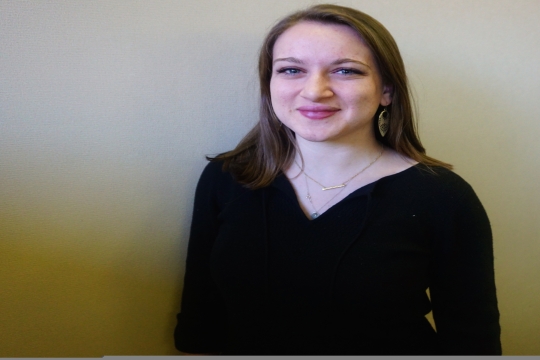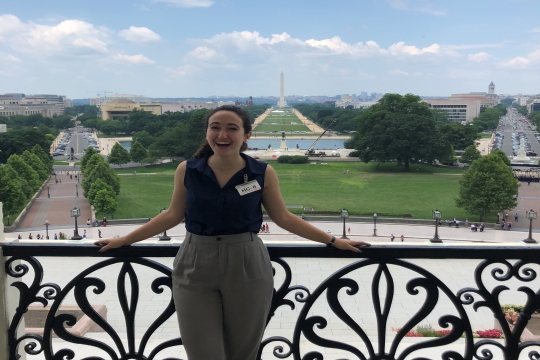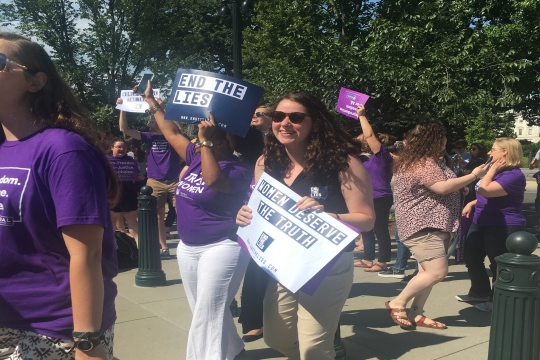
In late June, the U.S. Supreme Court released a series of opinions that were deeply disappointing to many in the social justice community. On Monday, the court refused to strike down racial gerrymandering in Texas and sanctioned anti-competitive, domineering practices used by both Silicon Valley and Wall Street. On Tuesday, the court endorsed pro-life crisis pregnancy centers in California that provide misleading and inadequate health information. And, of course, it upheld President Trump’s discriminatory travel ban. On Wednesday, the Supreme Court ruled in favor of employers over employees and their unions. And to top it all off, Justice Kennedy announced his retirement, giving President Trump the opportunity to influence the court’s ideology for years to come.
This summer, through the RAC’s Machon Kaplan program, I’m interning with the Coalition on the Environment and Jewish Life. My office is right next to the Supreme Court building. After each decision came out, my co-workers and I marched across the street to join the protests. We yelled at the unmoved, marble façade of the courthouse, shouting that we will not let our values be slandered. Voters, consumers, women, Muslims, union workers, and their allies all protested against the recent attacks on liberty and justice for all. We were crying out against America’s systemic oppression. We were brokenhearted.
When I returned to my office on Tuesday afternoon, right after the eruption of emotions at the latest rally, I was asked to write an op-ed in support of the Land and Water Conservation Fund (LWCF). Funded with royalties that offshore drilling companies pay to the U.S. government, the LWCF conserves national, state, and local open spaces at no cost to the American taxpayer. It is a great program.
But I struggled to focus on the op-ed because my mind kept running through a horrible reel of children crying in mass detention centers, refugees being turned away at the border, and women seeking dangerous illegal abortions. Surrounded by such visceral human suffering, I found it difficult to affirm the merits of the LWCF from the comfort of my office.
The thing is, though, fighting global warming is exceedingly important. It just doesn’t always feel that way, because policies, corporations, and individuals that desecrate the environment do not elicit emotional recoil to nearly the same extent that ICE officers taking children away from their parents do.
That’s a problem.
Our consciences are alarmed by injustices happening a) to people, and b) right now. Environmental threats have not been framed to fit either of those two conditions, so though they may concern us, we’re not screaming from rooftops about it. To offend our shared humanity enough to take serious action against global warming, we have to reframe the issue.
At the risk of sounding repetitive, I keep referring to humankind’s ill-effects on the environment as ‘global warming’ and not ‘climate change.’ I use this phrasing because, to quote Rice University philosophy Professor Timothy Morton, “climate change as substitute enables cynical reason (both right wing and left) to say that the ‘climate has always been changing,’ which to my ears sounds like using ‘people have always been killing one another’ as a fatuous reason not to control the sale of machine guns.”
Imagine if I referred to the monstrous policies at our Southern border as ‘immigration enforcement’ instead of ‘family separation.’ That kind of deflecting and distracting rhetoric would garner immediate and severe reproval. We should recognize our own hypocrisy, then, every time we say ‘climate change.’
Similarly, environmental nonprofits further our inaction every time they send out postcards of serene, untouched, human-less landscapes to ask for donations. Yes, the pictures are pretty, but they dehumanize global warming. Rabbi Abraham Joshua Heschel wrote on the notion of justice: “that justice is a good thing, a fine goal, even a supreme ideal, is commonly accepted. What is lacking is a sense of the monstrosity of injustice.” Picturesque landscapes are the ‘fine goal’ of environmental justice just like a quiet border checkpoint is the ‘fine goal’ of immigration justice. Neither evokes the pain, the despair that is needed to bring about change.
The monstrosities of environmental injustice are real, and we must recognize them. Environmental justice organizations should be sending out pictures of the dead bodies after the Bhopal gas leak, crying families after extreme hurricanes in New Orleans and Puerto Rico, and wildlife choking on BP’s spilled oil.
Environmental advocates often predicate their arguments on the need to protect future generations. But the focus on the future obscures the necessity of present action. The issue must be here and now.
When we think of environmental concerns like global warming, we must be impassioned. We must protest and rally, scream and cry because our sense of humanity is so terribly offended. Rabbi Heschel heeded that “frightful is the agony of man,” and agony is exactly what we need to ignite our fight against global warming.
Noah Goldmann is a 2018 Machon Kaplan participant, interning at the Coalition on the Environment and Jewish Life. Noah is from Rockland County, New York, and is a rising sophomore at Syracuse University. He’s majoring in mathematics and minoring in music performance.
Machon Kaplan is an internship program for undergraduate students interested in Judaism and social justice. Based in Washington, D.C., it provides students with a meaningful social justice internship, the opportunity to engage in study related to their internships and and making change more broadly, as well as an open reflective community with whom to share their experience. Students learn, through study and action, the interrelationship of Judaism and American ideals, as well as how change happens. Learn more.
Related Posts

Learning to Appreciate the Value of Nonpartisanship Through My Summer Internship

"Politiclueless": Getting Acclimated to D.C. through Machon Kaplan

